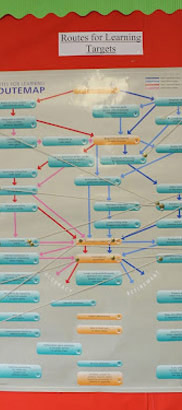
In a speech to members of the Specialist Schools and Academies Trust (now The Schools Network) on 2 December 2011, Miriam Rosen, Her Majesty's Chief Inspector (HMCI), commented how high quality assessment is viewed by Ofsted as a key element of effective teaching.
Assessment for learning in the classroom is reported by her to be one of the weakest aspects of teaching. Ofsted's inspection evidence is taken to show that a weak understanding of pupils' different levels of progress means that too often work is not well enough matched to pupils' needs.
Have a look at this selection of quotes from the speech.
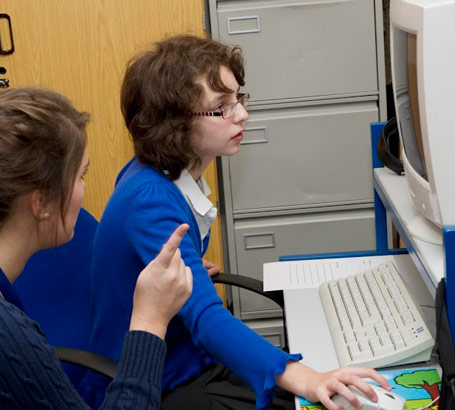
To what extent do you currently feel staff in your context effectively match work activities to each pupil's needs?
What forms of peer assessment do you currently use and how are these effective? How do you measure this and is there room
for further development?
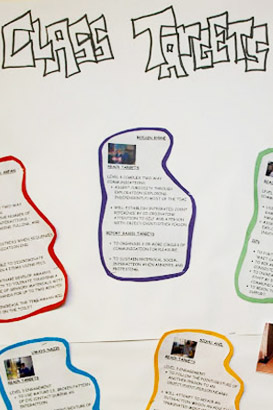
Ofsted inspections focus on the extent to which leaders know their school well and set ambitious targets based on perceptive
self-evaluation. Inspectors will gauge how effectively school leaders monitor and track pupils' learning and progress in
order to identify areas where improvements are needed.
Considerable stress is placed on the critical role of leaders in improving teaching and learning. Raising standards of achievement
of pupils is the priority, although safeguarding, parental involvement and other issues are subject to scrutiny. Inspectors
evaluate the school's actions in terms of the evidence they find of impact on standards of achievement.
HMCI argues that on the surface, the processes for leading and managing
teaching and learning are broadly similar between those schools that are judged satisfactory and those that are judged outstanding.
In all schools, lesson observations take place regularly. All teachers are getting used to being observed by school leaders
either during 40 to 60 minute observations or in the context of brief visits to the classroom on learning walks that sample
aspects of teaching and learning.
In all schools, the attainment of learners is now monitored regularly by at least the senior leadership team and a range of commercial packages are now used by schools to compare levels of attainment with various regional and national databases. Where schools differ, HMCI claims, is in the effectiveness of these activities.
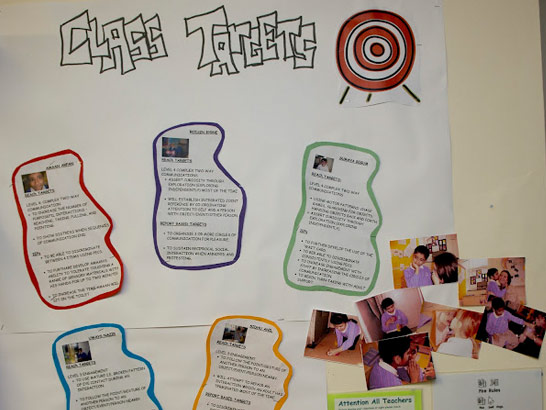
Reflect upon the assessment packages you currently use and how these might be viewed by inspectors.
How can you show their effectiveness?
Can you show the impact that specialist support has had on pupil progress?
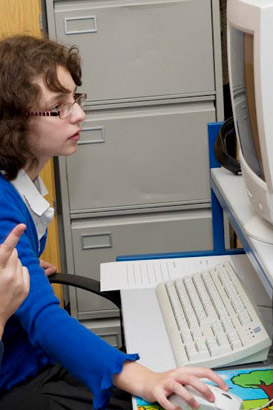
HMCI's view is that schools have to be well-led, well-managed and must
be self-critical. Schools need to know what they do well, where there are weaknesses and how to improve them.
Self-evaluation is essential, but it is no longer just about making regular classroom observations to check all is well.
It is about building up a jigsaw of evidence from a range of sources; it involves making judgements based on the interpretation
and evaluation of data and evidence; it looks closely at the quality of teaching and pupils' achievements; it identifies
effective practice; it examines what pupils are doing well and not so well; it identifies strengths and weaknesses in teaching
and leadership; it looks at trends over time; and it has absolutely no value unless action to improve follows the process.
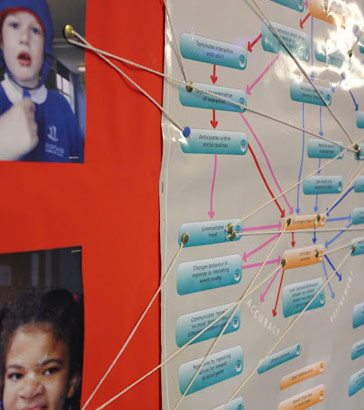
What are you currently doing well as regards self-evaluation in your context? What is really effective?
Each person with leadership responsibility should be able to answer these four questions:
- Are all the pupils in your school learning as much as they are capable of learning?
- What do you do to find out?
- When you find answers to this first question how do you know that you are right?
- What do you do about it when you have the answers to the first question?
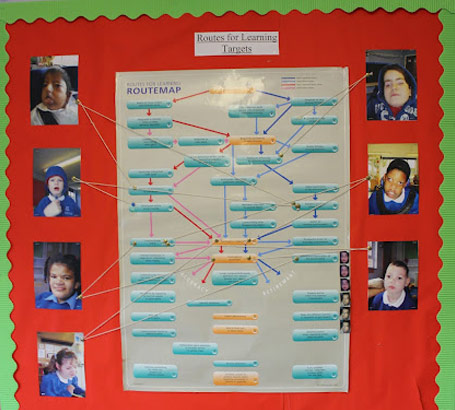
What you use as evidence is not so easy for special schools because often it may not be possible to see learning
in a lesson. Therefore, learning can only be judged from evidence of learning over periods of time.
The objectives of lessons must be measurable and records of individual pupils' responses in lessons must be related to those
objectives. The planning of lessons must be informed to a high level by an individual's response to learning.
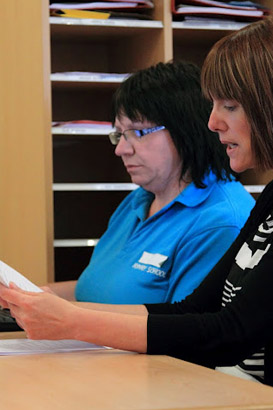
Consider the following questions in relation to your school.
Are pupils' responses recorded clearly and subsequent action taken to alter plans for future lessons, as appropriate, to
reinforce learning and avoid unnecessary repetition of previous work?
Is an appropriate range of strategies used to record individual pupils' learning and progress?
Are records retained and examined regularly to ensure they are fit for purpose? Do they show progress across different curricular
areas? How are they to be managed throughout a pupil's school career?
Does your school have a clear assessment policy that covers these details explicitly?